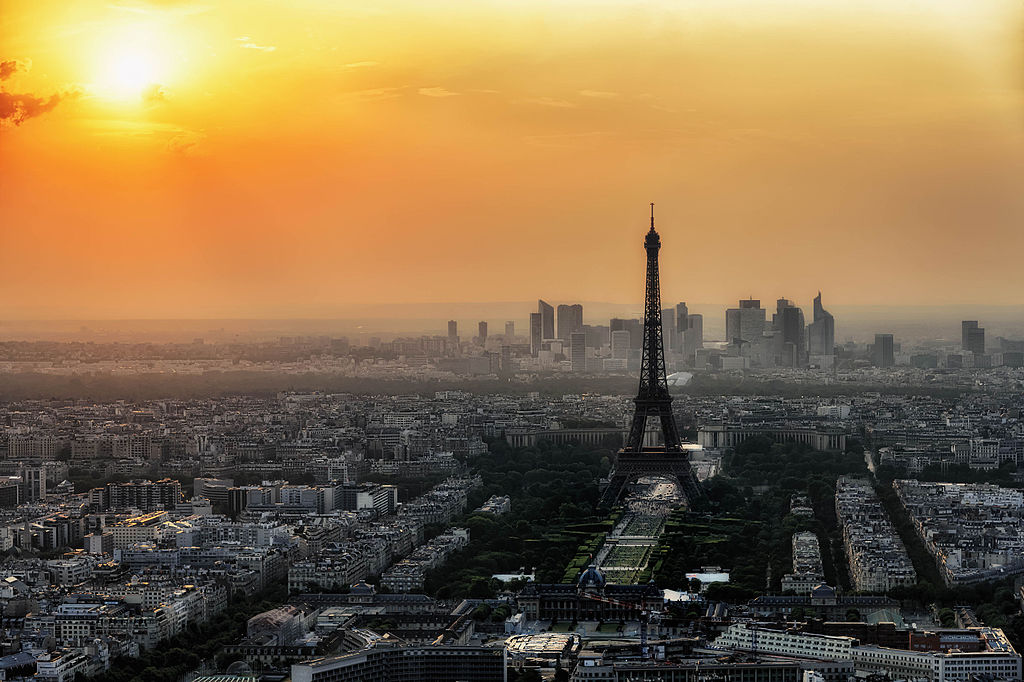Views expressed in opinion columns are the author’s own.
Climate change is real. If you don’t believe me, just check out NASA’s Climate Kids website, which reads, “Why is Earth getting warmer? As the carbon dioxide goes up, the temperature goes up even more.”
Yes, the Earth is warming, and yes, it is because humans are pumping tons of carbon dioxide into the atmosphere. The majority of the scientific community, nearly every nation on Earth and 68 percent of Americans believe climate change is real and caused by human activity. Why does President Trump fail to understand a fact so simple that NASA teaches it to children?
In 2015, every country on Earth other than Syria and Nicaragua signed the Paris agreement to mitigate the effects of climate change. Nicaragua refused to sign because they felt the agreement did not go far enough. Last week, Trump pulled out of the Paris agreement and forced the United States to join Syria as the only countries unwilling to address climate change. Is Assad’s Syria the country we want to associate with? The same Assad who used chemical weapons on his own people and has committed far too many atrocities for me to list.
This does not bode well for the climate. The United States accounts for 20 percent of global carbon dioxide emissions. Even before Trump, meeting our goal of cutting emissions 26 to 28 percent by 2025 was going to be a challenge. The odds that the U.S. fulfills its part in combating climate change are bleaker than ever.
What is the world to do following Trump’s abandonment of the Paris agreement? Other countries will continue to fight climate change, and the absence of U.S. leadership will push another nation into the role of world leader. Each foreign policy issue exists in an interconnected web of policies and perceptions. The country that emerges as the leader in climate change will gain influence as a leader in everything else. For all of his tough talk during the 2016 campaign, Trump just gave China a huge gift: the chance to move forward as a global superpower.
As Trump announced the U.S. withdrawal from the agreement, China’s second ranking official, Premier Li Keqiang, met with German Chancellor Angela Merkel in Berlin and declared the fight against climate change a “global consensus” and “international responsibility.” Furthermore, having just built the world’s largest floating solar farm, China is leading by example. With the U.S. retreating from the fight against climate change and China reaffirming its commitment, it is clear that China has become the leader on this issue.
This is only one example of a disturbing trend. By refusing to fully support our NATO allies and pulling the U.S. out of the Trans-Pacific Partnership trade agreement, Trump has reduced the role of the U.S. to that of a disruptor nation. Why, one may ask, should the U.S. be a leader in these issues? In short, NATO has helped prevent a third world war by forging a seemingly unbreakable alliance between member nations. This alliance has discouraged every other state from directly attacking a NATO member. NATO keeps the U.S. and the rest of the world safe from global calamity. Further, free trade agreements like the TPP increase trade between nations by reducing taxes on imported goods. With the U.S. dropping the agreement, the other countries that constituted the TPP will increase trade with the world’s second-largest economy — China.
China has been attempting to gain influence for years. President Xi Jinping has sought greater trade through his “One Belt, One Road” program, attempted to persuade South Korea to remove its THAAD anti-missile system to ensure Chinese military dominance in the region and worked to integrate China further into the global financial system. To see the shrinking relevance of the U.S., we only have to look at the events of the last few weeks: Trump showed complete disregard for his NATO allies by physically pushing aside the Prime Minister of Montenegro, and Chancellor Merkel declared that China “has become a more important and strategic partner.”
There is some hope for the environment as Michael Bloomberg coordinates an effort to curb U.S. carbon emissions between U.S. mayors, governors, universities and businesses. However, no matter what this group achieves for the environment, they will not be able to achieve U.S. leadership. Leadership comes from the top, and Trump has begun sacrificing America’s role as a global leader while helping China position itself to take our place.
Mitchell Rock is a senior government and politics, physiology and neurobiology major. He can be reached at mrock13@umd.edu.



